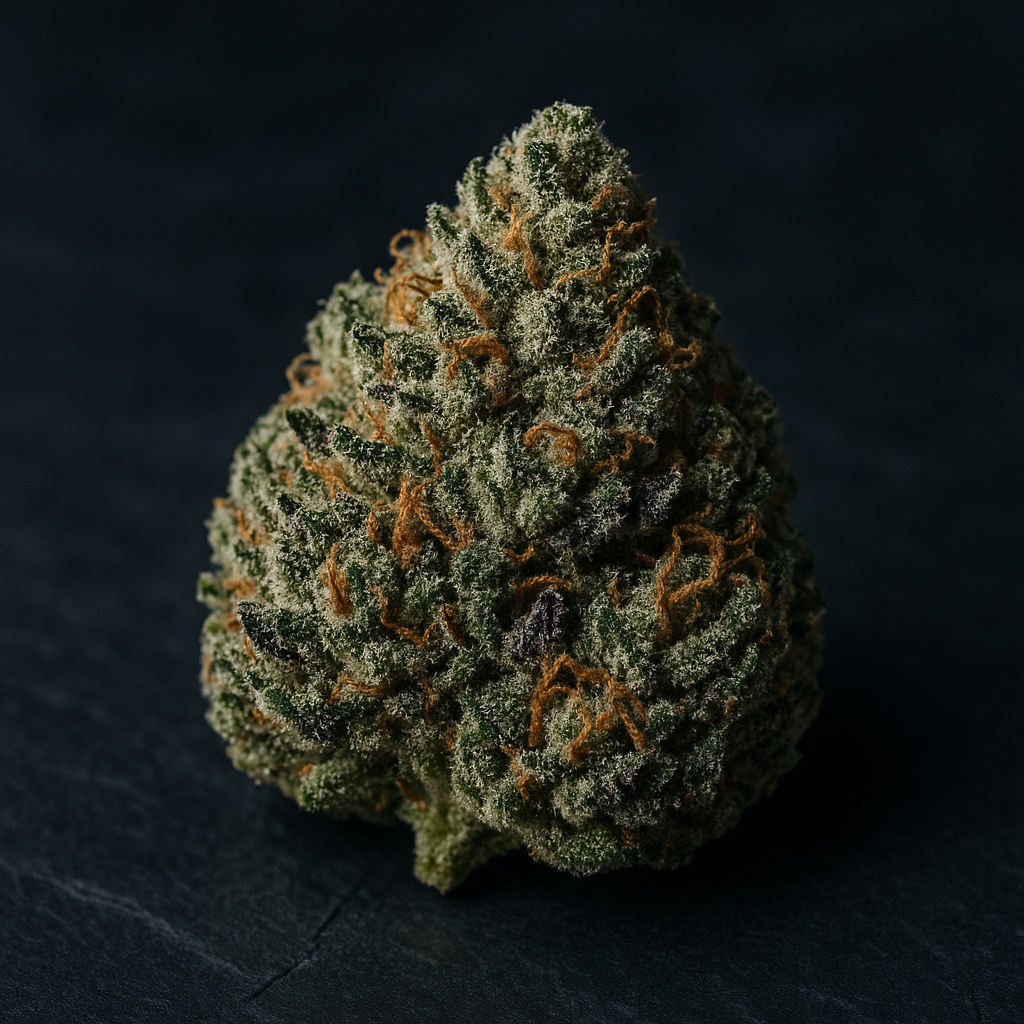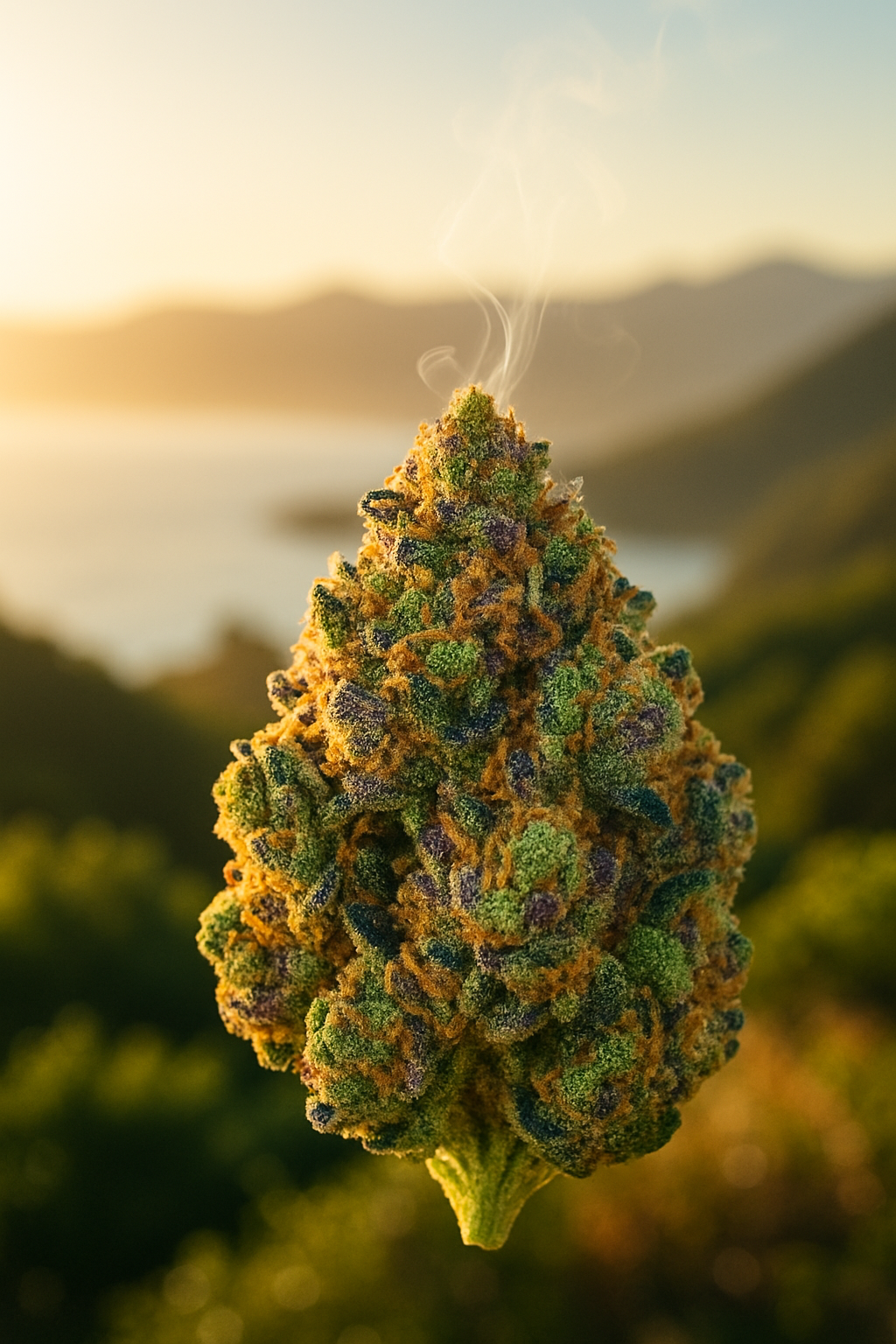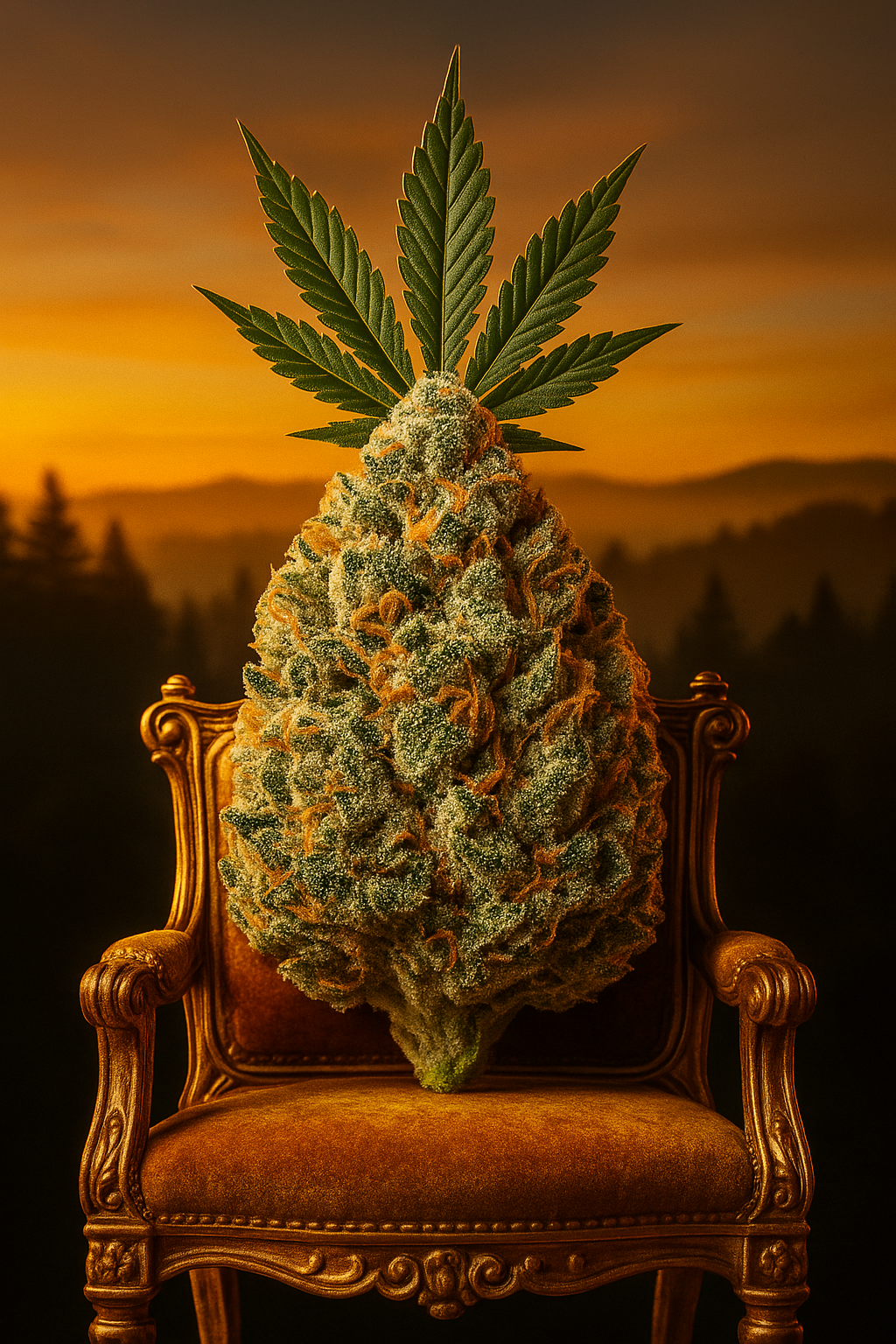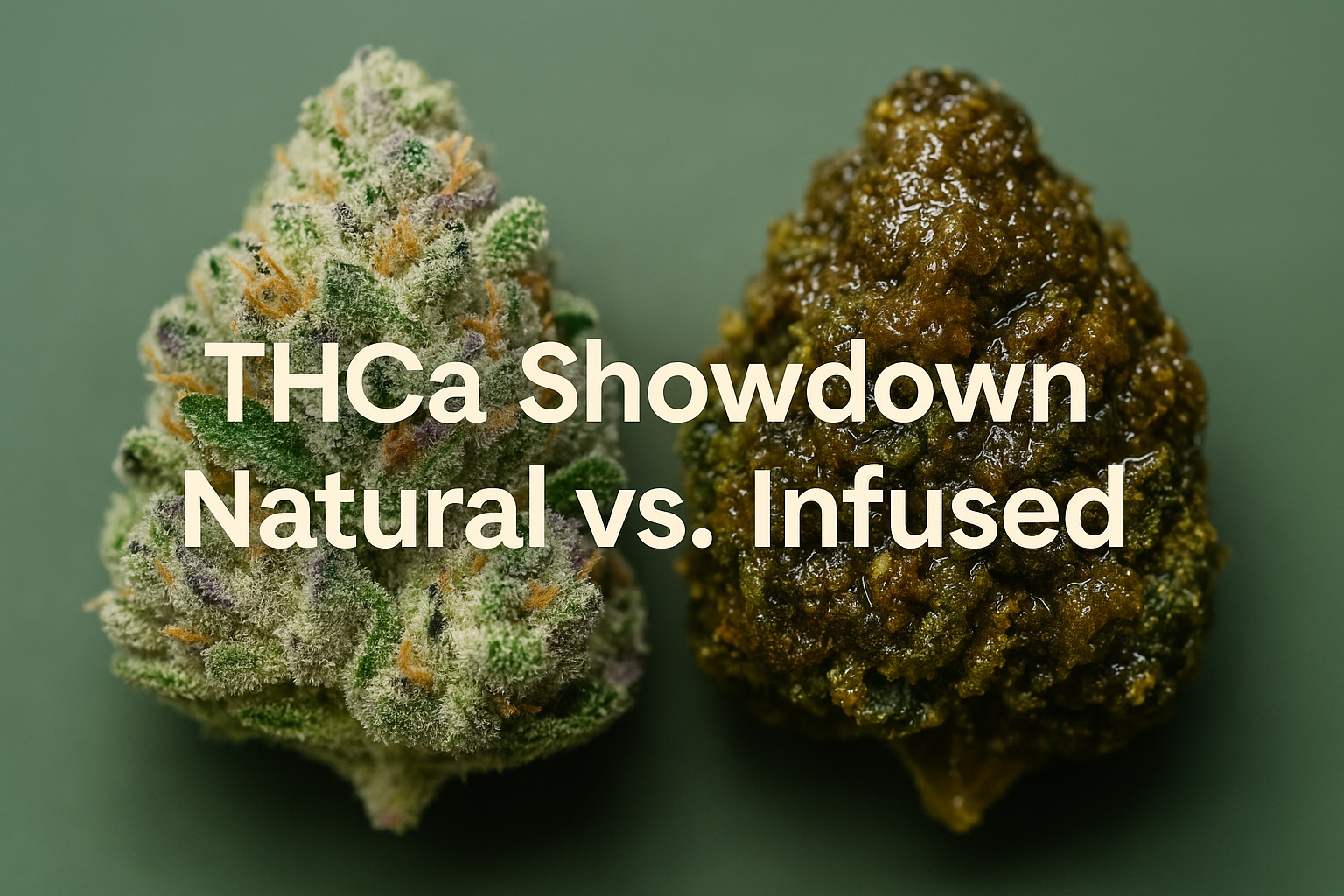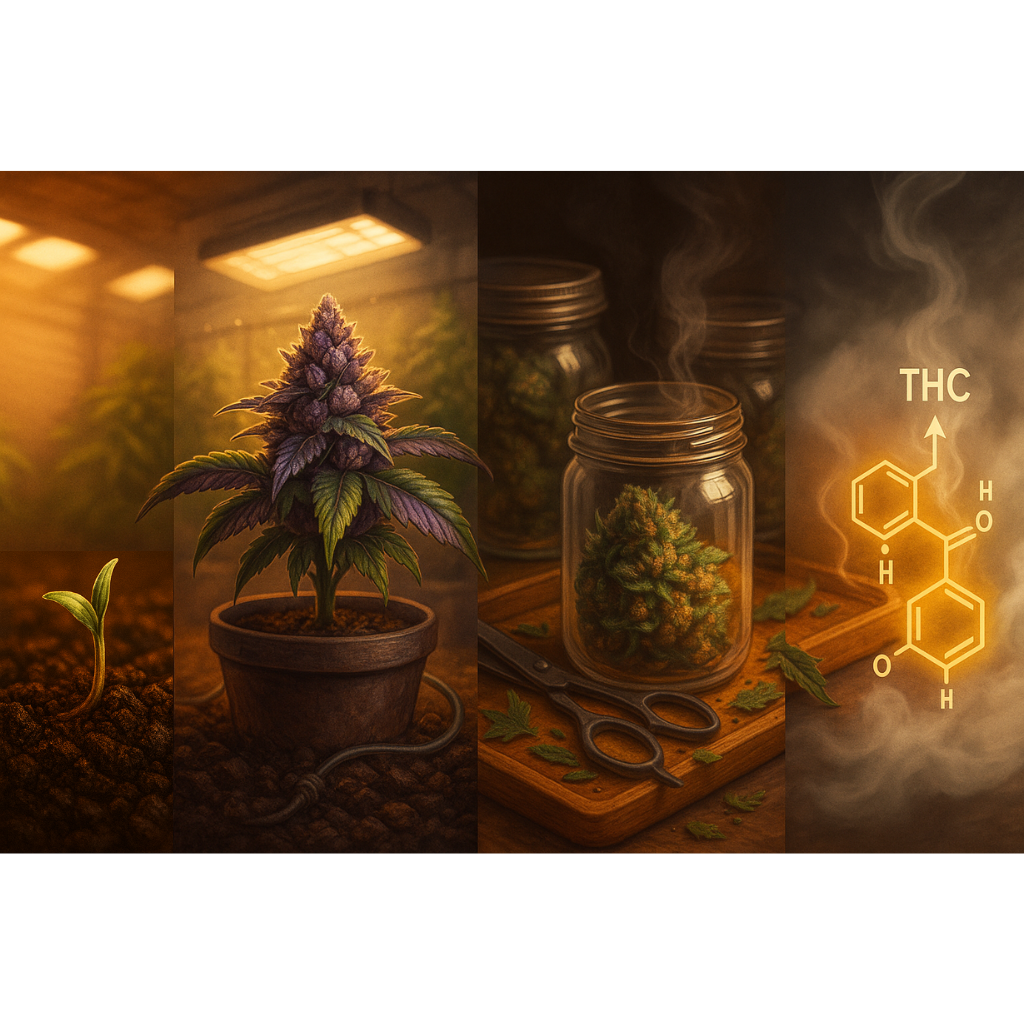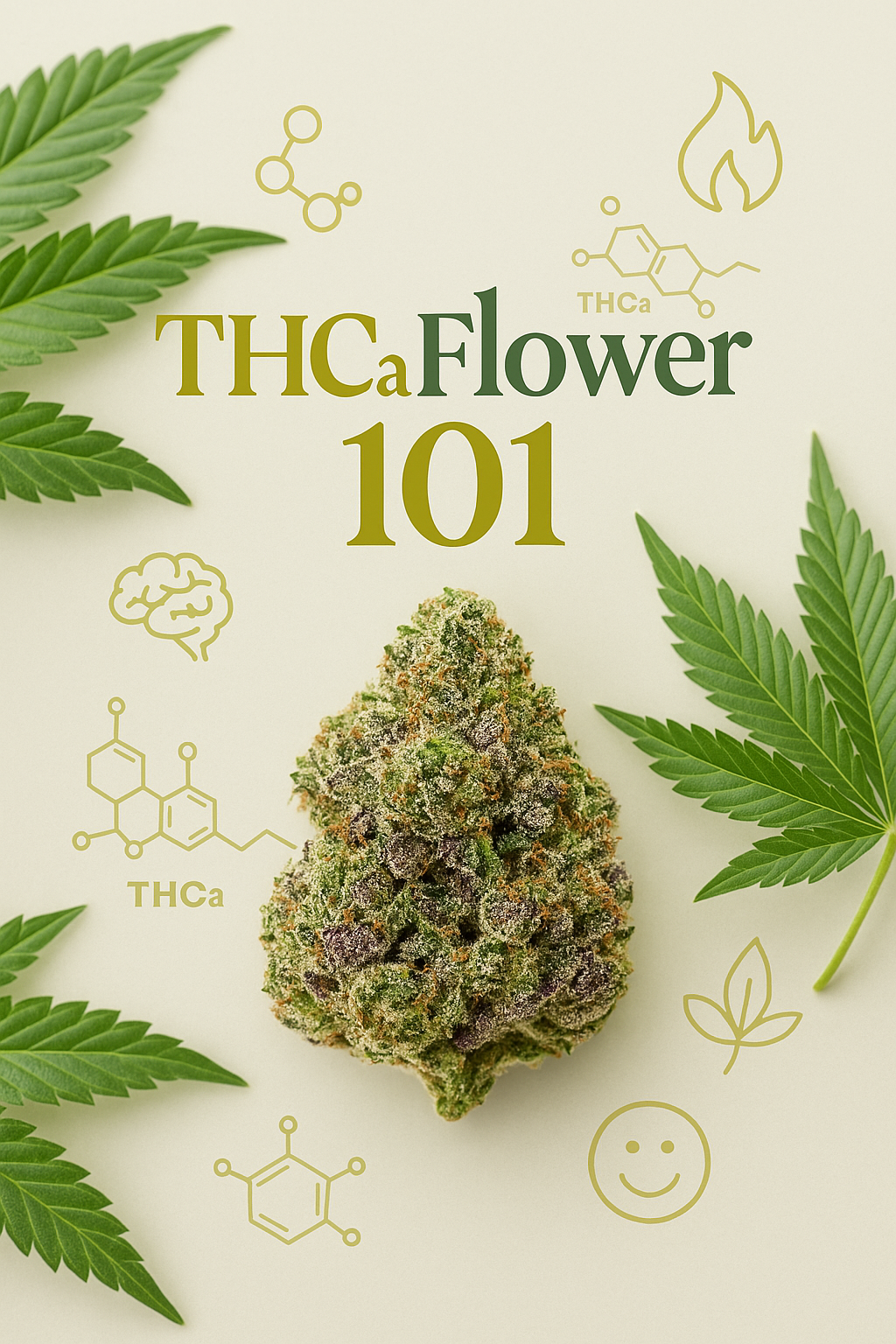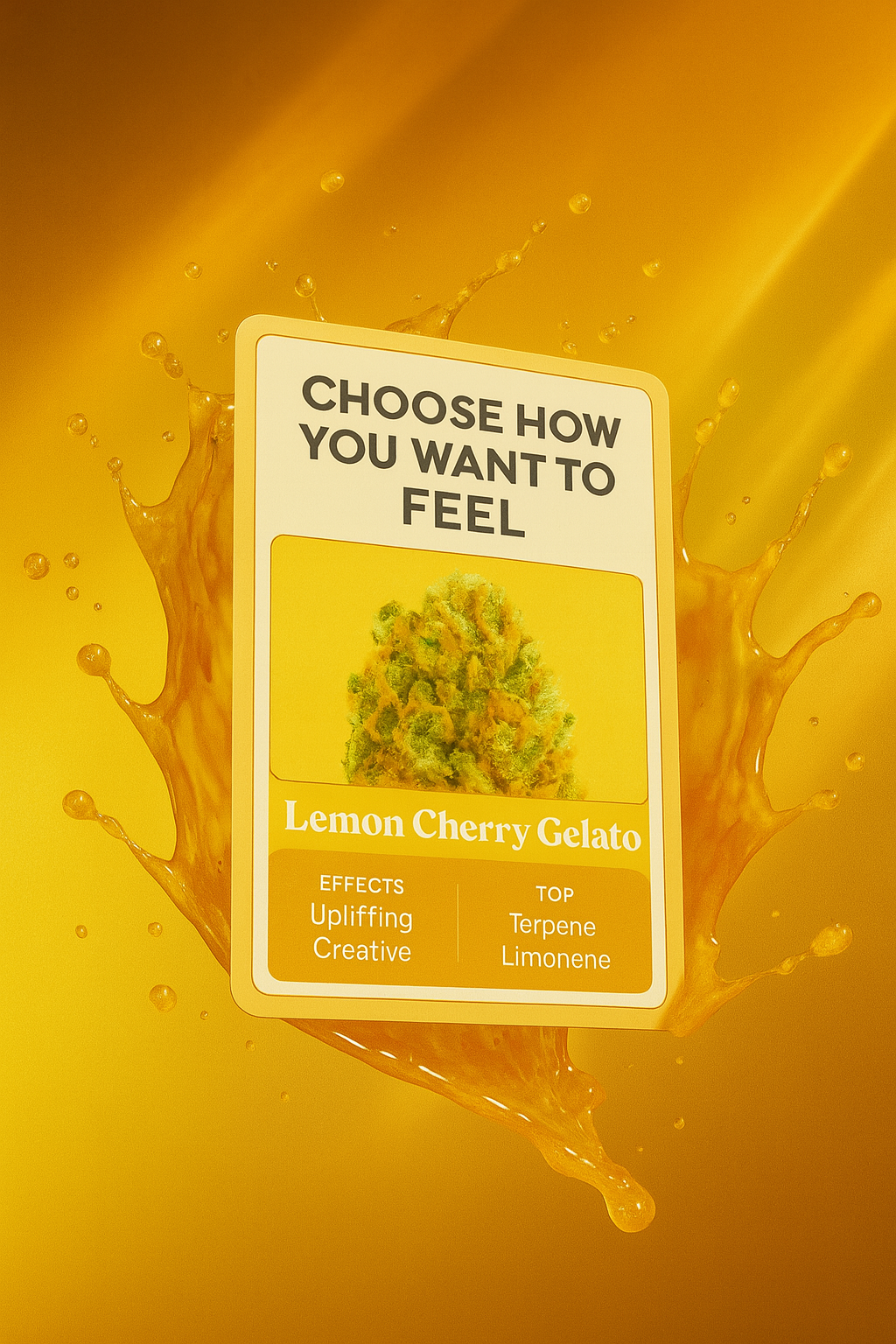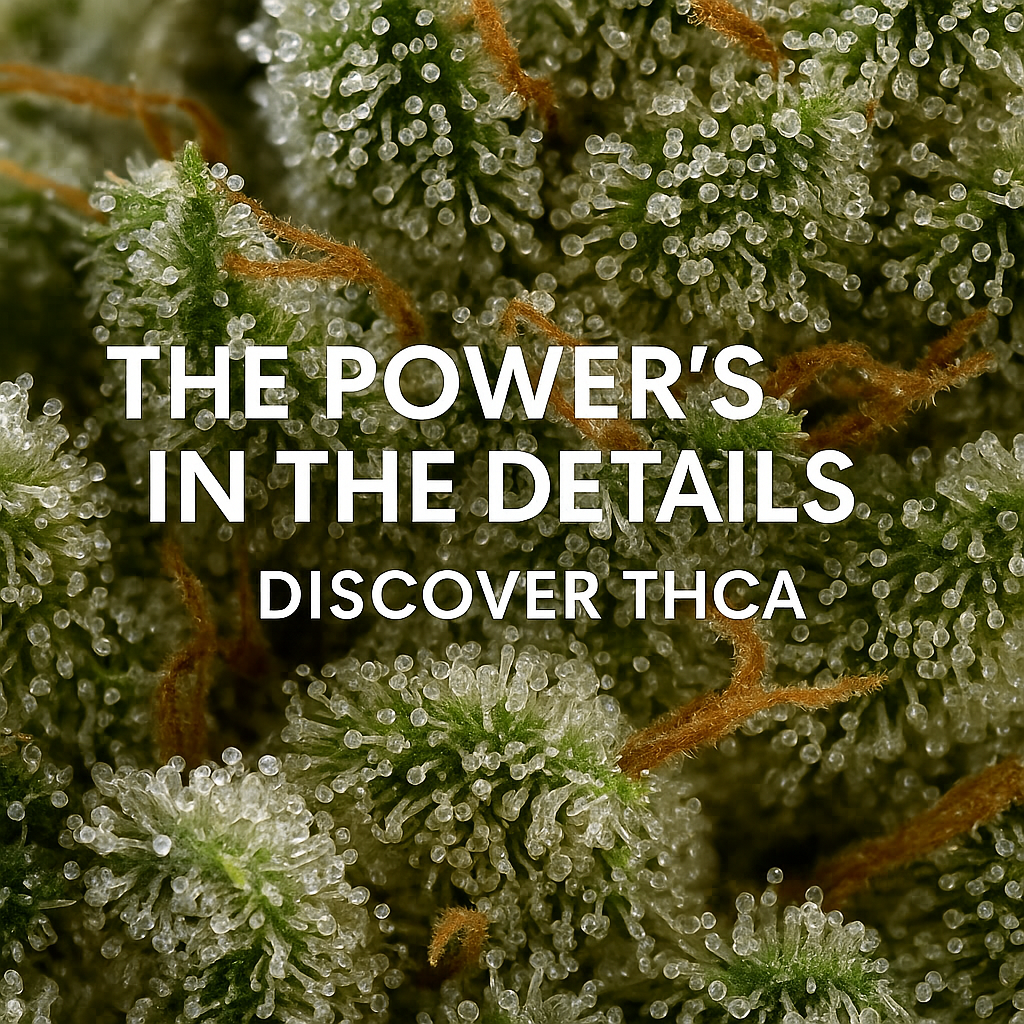What Is THCa vs THC? Understanding the Key Differences and Benefits
Written by Trevor

Here’s a breakdown of the key differences between THC and THCa, two compounds often encountered in the cannabis world. While they may sound similar, their effects are quite distinct. THC is the psychoactive compound responsible for the ‘high’ typically associated with cannabis, whereas THCa is a non-psychoactive compound found in raw cannabis that offers a more subdued experience. Understanding these differences is essential when deciding which option best suits your needs. For those interested in exploring high-quality THCa, CBD, and Delta 8 flowers, California Blendz offers an excellent selection worth considering.
Key Takeaways
- THCa is non-psychoactive and found in raw cannabis; it turns into THC when heated, which is the compound that gets you high.
- THCa might have health benefits like anti-inflammatory and neuroprotective effects, while THC is known for its psychoactive properties and therapeutic uses.
- Understanding the differences can help you choose the right product for your needs, whether you’re looking for a high or potential health benefits.
Chemical Composition and Conversion
Understanding THCa and THC Structures
THCa and THC are two distinct compounds found in cannabis, each with unique chemical structures. THCa, or tetrahydrocannabinolic acid, is the precursor to THC, the compound most associated with the psychoactive effects of cannabis. In its raw form, THCa contains an extra carboxyl group, which makes it non-psychoactive. This additional carboxyl group is the key structural difference between THCa and THC. When cannabis is consumed without heating, it primarily contains THCa, which doesn’t interact with the brain receptors responsible for the “high”.
The Process of Decarboxylation
Decarboxylation is the chemical process that transforms THCa into THC. This reaction is crucial for unlocking the psychoactive properties of cannabis. When the plant material is exposed to heat, such as when smoking or vaping, the carboxyl group is removed from THCa, converting it into THC. This conversion is necessary because THCa on its own doesn’t bind effectively to the brain’s cannabinoid receptors. Decarboxylation essentially activates the cannabis, making it potent and psychoactive. Without this process, consuming raw cannabis would not produce the typical effects associated with THC.
How THCa Converts to THC
The conversion of THCa to THC is a straightforward chemical reaction triggered by heat. When cannabis is heated, whether through smoking, vaping, or baking, the THCa loses its carboxyl group, becoming THC. This change not only alters its chemical structure but also its ability to interact with the body’s endocannabinoid system. The efficiency of this conversion can vary, depending on the method and conditions under which the cannabis is heated. For instance, smoking or vaping typically leads to a rapid conversion, whereas baking might take longer but still achieves the same end result. Understanding this conversion process is essential for anyone looking to experience the full effects of cannabis.
Psychoactive Effects and Benefits
THC’s Psychoactive Properties
THC, or Tetrahydrocannabinol, is the compound in cannabis that gives you that “high” feeling. It works by connecting with the CB1 receptors in your brain, which are part of the endocannabinoid system. This interaction can change how you feel and perceive things, like boosting your mood, altering your sense of time, or even making food taste better. But it’s not all fun and games. The effects of THC can vary a lot from person to person. Some might feel relaxed and happy, while others could experience anxiety or paranoia, especially with higher doses. It’s this unpredictability that makes THC a bit of a wild card when it comes to its psychoactive effects.
THCa’s Potential Health Benefits
Unlike THC, THCa (Tetrahydrocannabinolic Acid) doesn’t get you high. It’s found in raw cannabis and offers a bunch of potential health perks without the psychoactive effects. People are looking at THCa for its anti-inflammatory and neuroprotective properties. It might help reduce inflammation and protect brain cells, which is pretty promising for conditions like arthritis or neurodegenerative diseases. There’s also talk about THCa being useful for nausea, especially for those going through chemotherapy. While these potential health benefits sound great, more research is needed to fully understand how THCa works in the body.
Comparing Therapeutic Uses
When it comes to therapeutic uses, THC and THCa offer different benefits. THC is well-known for its ability to relieve pain, stimulate appetite, and help with sleep issues. It’s often used by people dealing with chronic pain or conditions that cause appetite loss. On the flip side, THCa provides therapeutic benefits without the high, making it a safer option for those who want to avoid the psychoactive effects. This makes it appealing for people who need relief from inflammation or nausea but don’t want to experience a high. The choice between THC and THCa often comes down to personal preference and the specific health issues someone is trying to address. For those looking for therapeutic benefits without psychoactive effects, THCa might be the way to go.
Legal Status and Usage

Navigating the legal landscape of THCa and THC can feel like walking through a maze. In the U.S., the distinction between THCa flower and THC flower is significant, primarily due to their differing psychoactive properties. THC, known for its mind-altering effects, is classified as a Schedule I controlled substance under federal law. This means that, except for specific medical or research purposes, its production, distribution, and possession are illegal on a federal level. However, many states have taken a more lenient approach, allowing THC for medical or recreational use under regulated conditions.
THCa, on the other hand, occupies a somewhat gray area. Since it doesn’t induce a high, it’s not explicitly listed as a controlled substance at the federal level. Nonetheless, its legal status can vary significantly from state to state. Some regions permit its use for medical purposes, while others may restrict it. A recent legislative change has federally legalized THCa, recognizing it as hemp rather than marijuana, which could potentially ease its legal restrictions (recent bill).
Common Forms and Consumption Methods
When it comes to consuming THC and THCa, there are several methods to choose from, each with its own set of pros and cons. Smoking or vaporizing cannabis remains popular due to the rapid onset of effects. However, this method might not be ideal for everyone, especially those concerned about lung health. Edibles offer a smoke-free alternative, providing long-lasting effects but requiring more time before they kick in. Topical applications are also available, appealing to those seeking localized relief without the psychoactive effects. The choice of consumption method often depends on personal preference and the desired outcome.
Safety and Side Effects
Understanding the safety profile and potential side effects of THC and THCa is crucial for responsible use. THC is well-known for its psychoactive effects, which can include euphoria, altered perception, and, in some cases, anxiety or paranoia. Prolonged use can lead to dependency and cognitive impairment. On the flip side, THCa is praised for its potential therapeutic benefits without the high, making it an attractive option for those seeking relief without psychoactivity. However, the safety of THCa, especially in high doses, is still under study, and users should approach it with caution. It’s essential for consumers to stay informed about the legal and health implications of these compounds to make educated decisions.
Understanding the Endocannabinoid System
How THCa and THC Interact with Receptors
The endocannabinoid system (ECS) is like a complex network of messengers and receptors that play a big role in keeping our body’s balance in check. It helps regulate things like mood, appetite, and even how we process pain. THC and THCa, both derived from cannabis, interact with this system, but they do it in different ways. THC is well-known for its ability to bind to CB1 receptors in the brain, leading to the psychoactive effects often associated with cannabis. This interaction can change how we feel, think, and perceive the world around us. On the other hand, THCa doesn’t bind as easily to these receptors, which is why it doesn’t get you high. Instead, it might offer other benefits, like reducing inflammation or protecting brain cells. THCA-rich strains of cannabis are especially intriguing because they might help with conditions like arthritis without the psychoactive effects of THC.
Impact on the Body’s Systems
When THC interacts with the ECS, it can affect various bodily systems, from our immune response to how we handle stress. This is why some people feel relaxed or even euphoric after consuming THC. However, THCa, in its raw form, might support wellness without these mind-altering effects. It’s thought to have potential anti-inflammatory and neuroprotective properties, which could make it useful for managing symptoms of certain conditions. The ECS is crucial for maintaining homeostasis, and how these cannabinoids influence it can be quite different.
Potential for Medical Applications
There’s growing interest in how both THC and THCa could be used in medical settings. THC is already known for its pain-relieving and appetite-stimulating effects, which is why it’s used in some treatments for chronic pain and appetite loss. THCa, while less studied, shows promise for its potential to help with inflammation and neuroprotection. More research is needed, but the unique properties of THCa could one day make it a key player in natural remedies. As we learn more about the ECS and how these cannabinoids work, the potential for medical applications continues to expand, offering new possibilities for treatments and therapies.
Conclusion
In wrapping up our look at THCa and THC, it’s clear that these two compounds, while related, offer different experiences and benefits. THCa, found in raw cannabis, doesn’t get you high but might have some health perks like reducing inflammation or protecting your brain. On the other hand, THC is the one that gives you that well-known “high,” along with potential benefits like pain relief and appetite stimulation. Whether you’re looking for the therapeutic effects of THCa or the psychoactive experience of THC, it’s important to know what you’re getting into. For those interested in exploring these options, California Blendz offers a range of THCa flower, CBD, and Delta 8 products that might just fit the bill. Always remember to choose what’s best for your needs and consult with a professional if you’re unsure.



